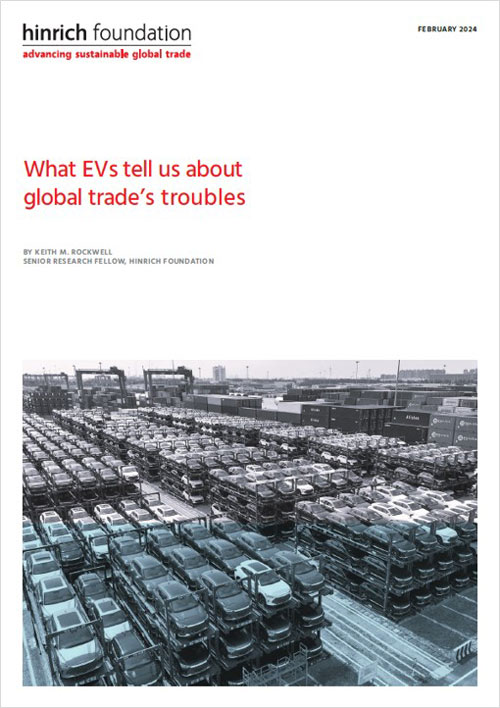Published 20 February 2024
The introduction of electric vehicles is about much more than the environment. Their rising role in the global economy has triggered a clash of industrial policies, cross-border trade partnerships, social policies, and national security agendas. How stakeholders react will impact the future of global trade and international relations.
This is not going to be easy.
Governments are struggling to try to find the right balance of policies to facilitate the widespread rollout of electric vehicles. No government has successfully navigated the cross currents of sometimes conflicting policies related to the development, production, and distribution of electric cars.
Ostensibly, electric cars are good for the environment. Emissions from internal combustion engine vehicles are a major contributor to the buildup of greenhouse gas emissions. That said, the introduction of electric vehicles is about much more than the environment. Their rising role in climate changes has triggered a clash of industrial policies, international trade relations, social policies, and national security.
There are inherent tensions between trade, environment, and industrial policies, and if governments mismanage the interplay between them, they run the risk of conflicting objectives. These policies intersect and overlap, and governments around the world are employing them all in a bid to address not just climate change, but also geopolitical rivalry, re-oriented supply chains, and sweeping technological change.
Climate change itself is already a monumental undertaking, but geopolitical rivalries, economic nationalism, and political polarization make the process even more complicated. Add to this the rapidly evolving technology used to design and produce electric batteries, and the finite and widely scattered supply of the raw materials needed to make these batteries.
Then there are the uneasy relationships between environmentalists, trade policy professionals, and central planning-oriented government officials. Poor coordination of policies among these groups threatens to stymie successful outcomes in all three. None of them will attain their objectives without cooperating with the others.
The tensions arising from the heavy-handed application of industrial, trade, and environmental policies regularly spill over into the global sphere. Industrial policy is often driven by economic nationalism so it should come as no surprise that protectionist policies become entrenched.
The resulting trend towards managed trade could hinder efforts to make EVs more available and affordable, says Senior Research Fellow Keith Rockwell in this paper.
© The Hinrich Foundation. See our website Terms and conditions for our copyright and reprint policy. All statements of fact and the views, conclusions and recommendations expressed in this publication are the sole responsibility of the author(s).







